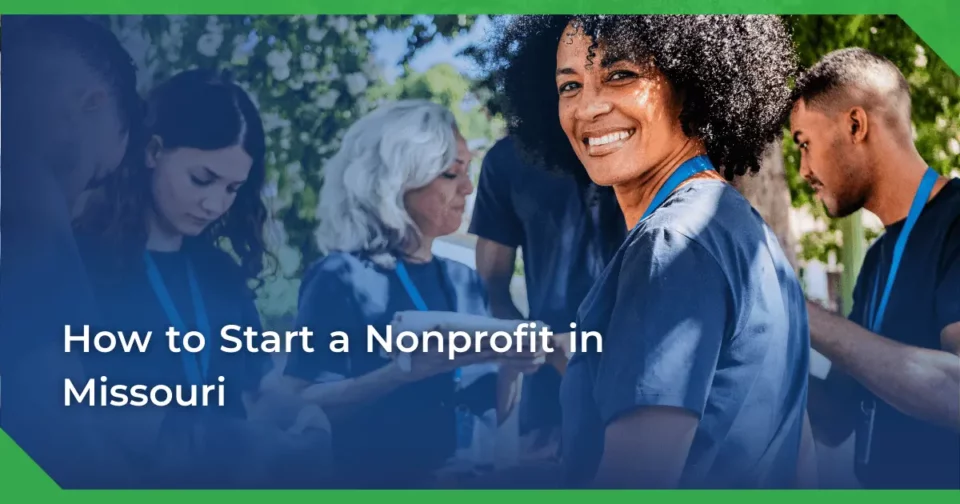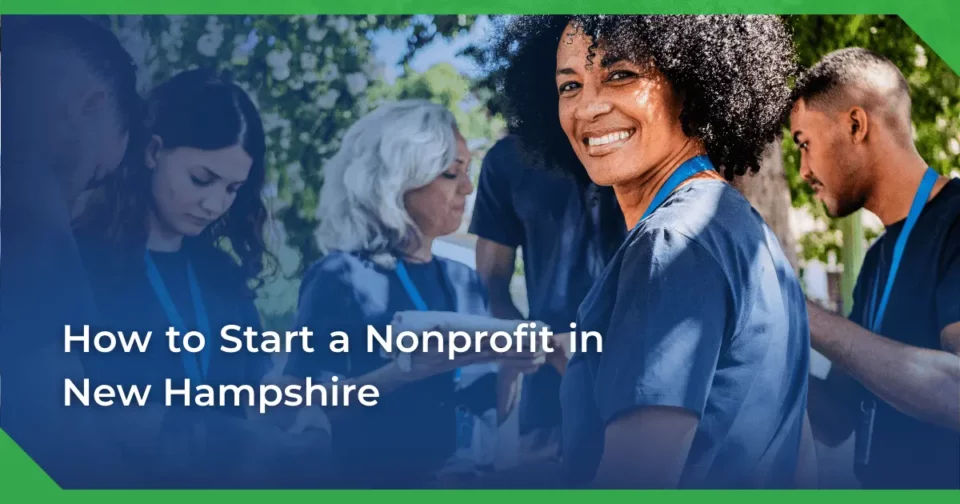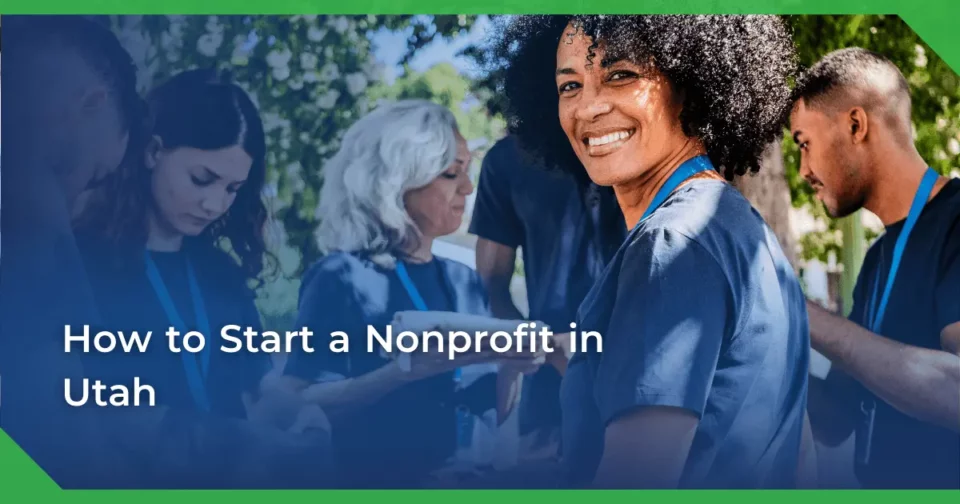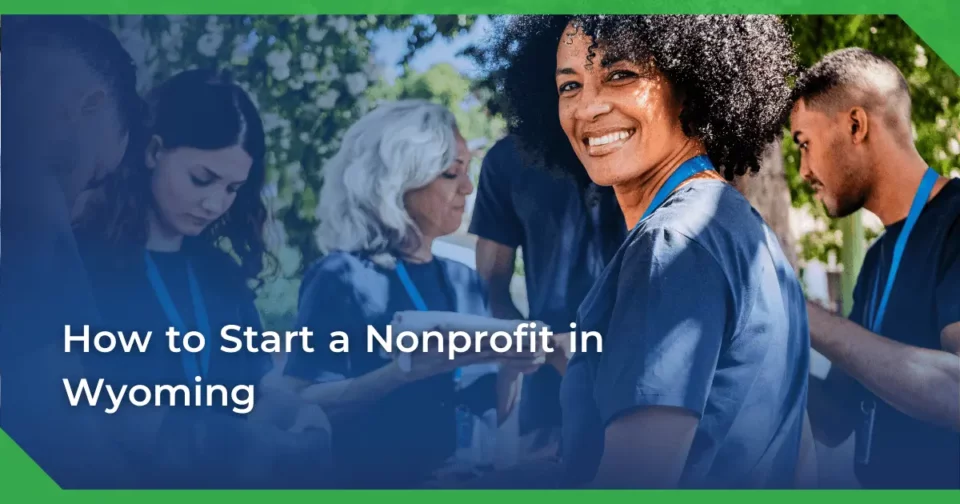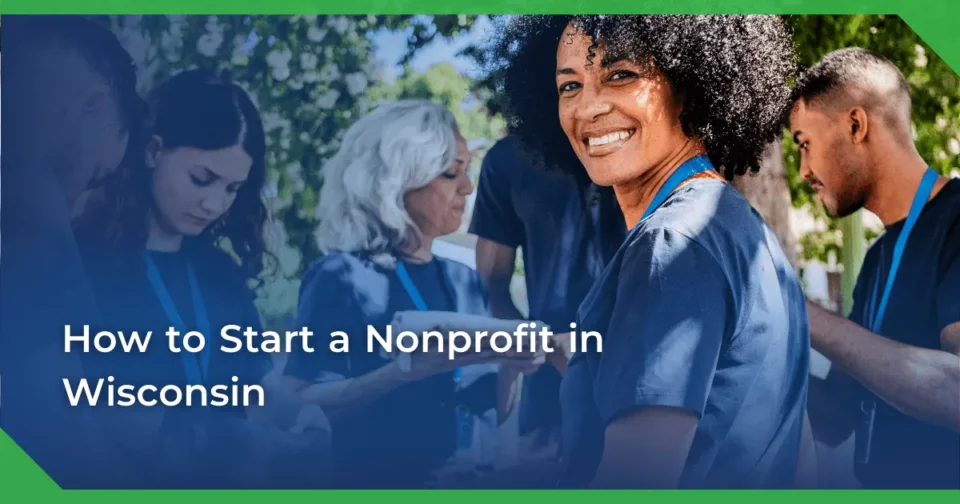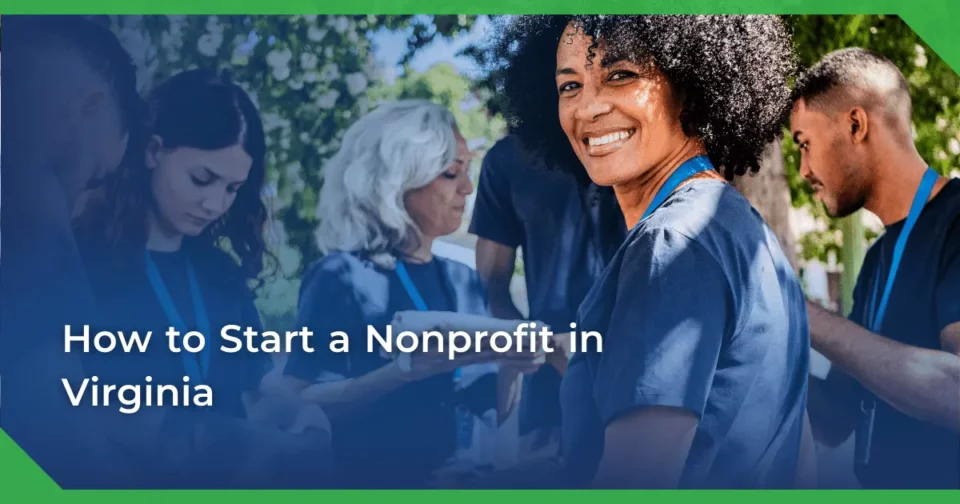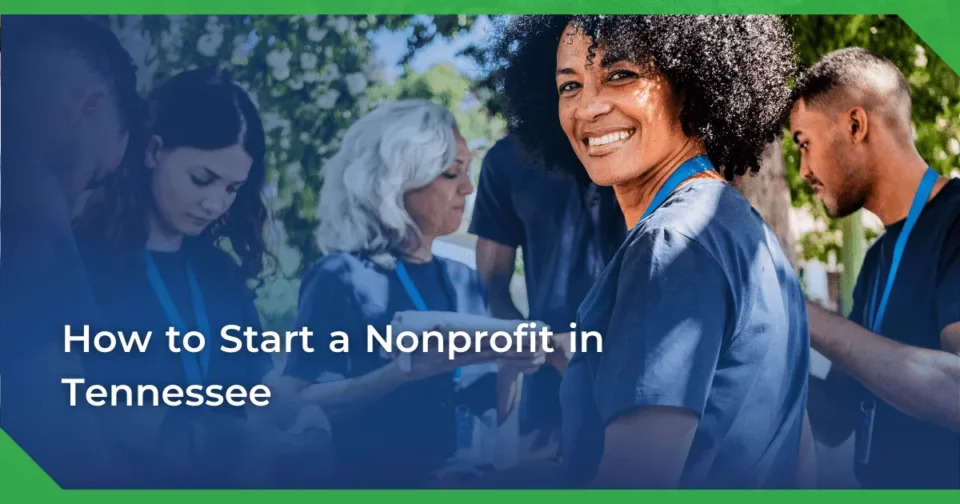
How to Start a Nonprofit in Missouri: A Step-by-Step Legal Guide
August 27, 2025How to Start a Nonprofit in Washington: A First-Timer’s Step-by-Step Guide
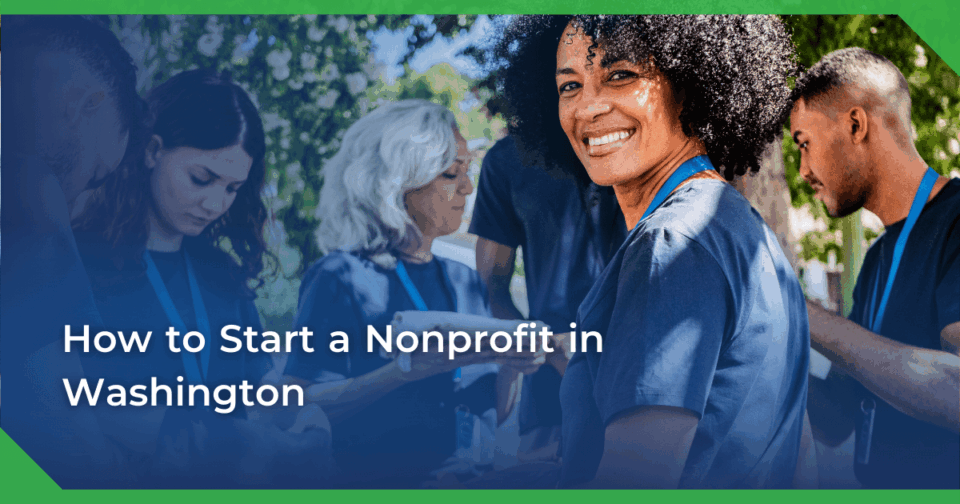
Wondering how to start a nonprofit in Washington but feeling overwhelmed by all the paperwork and legal requirements? You’re not alone!
Every successful nonprofit organization began with a passionate individual who wanted to make a difference. The good news? Washington state offers a supportive environment for new nonprofits, with over 33,000 charitable organizations already making an impact across the state.
Starting your own nonprofit might seem daunting at first, but with the right guidance, you can transform your vision into reality. This step-by-step guide breaks down the entire process into manageable pieces—from defining your mission to filing for 501(c)(3) status and beyond.
Whether you’re passionate about environmental conservation, education, healthcare, or another worthy cause, Labyrinth, Inc. can help you navigate the journey. Our specialized nonprofit formation services, backed by a 100% money-back guarantee for 501(c)(3) approval, have helped countless first-time founders turn their dreams into thriving organizations. With 1-on-1 support from Nonprofit Compliance Specialists who bring 15+ years of experience, you’ll have expert guidance every step of the way.
Ready to create lasting change in your community? Let’s dive into what it really takes to start a nonprofit in Washington state! For comprehensive support throughout your nonprofit journey, check out the resources available at Labyrinth’s 501(c) Nonprofit services.
Is Starting a Nonprofit Right for You?
Before diving into the paperwork, take time to assess if establishing a nonprofit is truly the right path for your mission. With nearly 2 million nonprofits already operating in the United States, your first step should be determining whether creating a new organization is the most effective way to serve your cause.
Understand the purpose of a nonprofit
A nonprofit corporation exists to accomplish a public benefit rather than generate profits for owners. Unlike for-profit businesses, nonprofits have no owners or shareholders and cannot distribute earnings to individuals. Instead, any surplus funds must be reinvested into furthering the organization’s mission.
The fundamental purpose of nonprofit organizations is to benefit the public or a specific community. Nonprofits are primarily mission-driven entities that serve the public interest through charitable, educational, religious, or other activities that improve quality of life.
Nonprofits must maintain accountability to multiple stakeholders—donors, founders, volunteers, program recipients, and the broader community. This accountability directly affects public confidence and, consequently, fundraising success.
Explore alternatives like fiscal sponsorship or partnerships
Creating a new nonprofit isn’t the only way to make a difference. Consider these alternatives that might better serve your goals:
- Partner with an existing nonprofit: Many organizations welcome new initiatives and can provide immediate impact through established infrastructure, existing donor networks, and operational systems.
- Fiscal sponsorship: This arrangement allows you to operate under an established nonprofit’s tax-exempt status while focusing on your mission rather than administrative duties. Fiscal sponsors typically handle accounting, compliance, and reporting in exchange for a percentage fee.
- Start a local chapter: Many national organizations offer chapter opportunities that provide branding, systems, and support while allowing local autonomy.
- Volunteer or join a board: Apply your skills and passion by serving an existing organization rather than starting from scratch.
Fiscal sponsorship particularly deserves consideration as it offers immediate tax-exempt status for fundraising, lower administrative burdens, and professional support. Furthermore, this option lets you test your concept before committing to the full nonprofit formation process.
Consider your long-term commitment and goals
Starting and running a nonprofit requires significant dedication. Assess your readiness in these key areas:
- Time commitment: Nonprofit leadership demands substantial ongoing time investment, often beyond what founders initially anticipate.
- Control expectations: If maintaining complete control is important to you, a nonprofit may not be the right structure, as these organizations are governed by boards with shared decision-making.
- Resource requirements: Building a sustainable nonprofit demands financial resources, community connections, and specialized knowledge.
- Mission uniqueness: Determine whether your proposed services duplicate existing efforts or truly fill an unmet community need.
Remember that sustainability presents a major challenge—nonprofits must continuously secure funding while complying with regulatory requirements and maintaining public trust.
If you’ve evaluated these considerations and believe a nonprofit is indeed the right structure for your mission, Labyrinth offers specialized guidance to navigate Washington’s nonprofit formation process. Our fully managed service handles everything from incorporation through IRS approval, ensuring compliance at every step.
Planning Before You File
Once you’ve decided that starting a nonprofit in Washington is the right path, thoughtful planning becomes your next crucial step. You’ve outlined community needs and drafted a mission statement. Now what? Let’s tackle the state filings that move you forward.
Define your mission and community need
A compelling mission statement serves as your nonprofit’s compass, clarifying why your organization exists and the specific needs it addresses. An effective mission statement should be concise, inspirational, and operational—clearly stating your purpose while motivating others to join your cause.
Your mission statement should:
- Express your organization’s essential reason for existence
- Describe the specific needs you’re addressing
- Reflect your core values and beliefs
- Be forward-thinking and describe what success looks like
When crafting your mission, involve multiple stakeholders including potential board members, volunteers, donors, and importantly, members of the community you’ll serve. This collaborative approach ensures your mission resonates with those who will support and benefit from your work.
Remember that your mission statement will guide strategic planning, resource allocation, and everyday decision-making. It should be prominently featured in all communications and serve as a touchstone during challenging times.
Build your founding team and board
In Washington state, your nonprofit must have at least three board members to comply with state law. While Washington technically allows as few as one director, we recommend using three to align with IRS standards for 501(c)(3) organizations. These individuals will govern your organization and manage its activities, so selection requires careful consideration.
When recruiting your founding board:
- Seek diversity in skills, perspectives, backgrounds, and demographics
- Look for members who are passionate about your cause
- Consider individuals with connections or expertise that furthers your mission
- Assess each candidate’s ability to contribute meaningfully and collaboratively
- Prioritize those who understand the communities you’ll serve
Your founding board should ideally include people with different skill sets that complement each other. For example, you might need someone with financial expertise, another with program development experience, and others with connections to your target community.
Beyond skills, board members have a fiduciary duty to act in the best interests of the organization. During recruitment, ensure candidates understand their legal responsibilities and time commitment required during the startup phase.
Draft an organizing plan and budget
Prior to filing formation documents, create an organizing plan that outlines your nonprofit’s approach. This plan should document the community need you’re addressing, your proposed solutions, potential funding sources, and community engagement strategies.
Subsequently, develop a more detailed business plan that explains your goals and implementation strategy. This document will help you articulate who your organization will serve, how you’ll deliver services, operational details, and funding mechanisms. A well-crafted business plan also provides valuable content for your IRS Form 1023 application for tax-exempt status.
For your budget, focus on the essentials:
- State filing fees: $60 for Articles of Incorporation (or $20 if annual gross revenue is under $500,000)
- Federal filing fees: $600 for Form 1023 or $275 for Form 1023-EZ
- Washington charitable registration: $60 initial fee, $40 annual renewal
- Estimated time: Plan for 40-60 hours of founder time to complete all formation steps
Your operational budget should align with your mission and strategic priorities, with the majority of resources typically allocated to program expenses.
For comprehensive guidance on planning your Washington nonprofit, Labyrinth offers specialized support throughout the formation process, helping you establish a solid foundation from the beginning. Our Nonprofit Compliance Specialists will work with you 1-on-1 to ensure your planning documents meet both state and federal requirements.
Legal Steps to Form Your Nonprofit in Washington
After completing your planning phase, it’s time to tackle the formal legal requirements that transform your nonprofit vision into an official entity in Washington state. Let’s walk through each crucial step of the formation process.
Choose a name and check availability
First, select a distinctive name that reflects your mission and meets Washington’s requirements. Your nonprofit name must be unique and distinguishable from other registered entities in the state. Moreover, unlike for-profit businesses, nonprofit names in Washington should avoid terms like “corporation,” “incorporated,” “company,” or their abbreviations (Corp., Inc., Co., Ltd.). Instead, consider using words such as “club,” “league,” “association,” “services,” “committee,” “fund,” “society,” or “foundation” that better represent your charitable purpose.
Before finalizing your selection, conduct thorough availability checks through:
- Washington Secretary of State’s business search tool
- Domain name registries to secure your online presence
- Federal trademark database to avoid potential legal issues
File Articles of Incorporation with the Secretary of State
Filing your Articles of Incorporation officially establishes your nonprofit as a legal entity. You can submit these documents online or by mail to the Washington Secretary of State Corporations & Charities Division. The standard filing fee is $60, although organizations with annual gross revenue under $500,000 qualify for a reduced fee of $20.
Your Articles must include essential information such as your nonprofit’s name, purpose, registered agent details, initial board of directors, and asset distribution plan in case of dissolution. Additionally, ensure your purpose statement aligns with IRS requirements if you plan to pursue 501(c)(3) tax-exempt status later. Specifically, your Articles must include an IRS-approved purpose clause and dissolution clause to qualify for 501(c)(3) status.
For those who prefer professional assistance, Labyrinth manages the entire incorporation process, drafting state-specific documents that comply with both Washington requirements and IRS standards. Our drop-off service at the state office can expedite approval times, getting your nonprofit established faster. Washington typically processes nonprofit incorporations within 5-10 business days for online filings and 2-3 weeks for mail submissions.
Appoint a registered agent and file your initial report
Under Washington law, every nonprofit must designate a registered agent who serves as your official point of contact with state authorities. This individual or company must maintain a physical street address in Washington and be available during regular business hours to receive legal documents, service of process, and government correspondence on your behalf.
Upon formation, you’ll need to file an initial report within 120 days. This document records your principal office information and governing board members. Although this filing can be submitted alongside your Articles of Incorporation at no additional cost, filing separately later incurs a $10 fee.
Apply for an EIN from the IRS
Finally, obtain an Employer Identification Number (EIN) from the Internal Revenue Service. This nine-digit number functions as your nonprofit’s tax ID and is essential for opening bank accounts, hiring employees, filing tax returns, and applying for 501(c)(3) status. You can apply for free through the IRS website immediately after your nonprofit is approved by Washington state. Important: You must obtain your EIN after formation but before filing for tax-exempt status or opening bank accounts. We include EIN acquisition as part of our comprehensive nonprofit formation service, ensuring this critical step isn’t overlooked.
For personalized guidance through these complex legal steps, Labyrinth offers comprehensive support for Washington nonprofits. Our secure, SOC 2 Type II client portal allows you to track every step of your formation process in real-time.
Getting 501(c)(3) Status and State Compliance
With your nonprofit corporation legally established in Washington, securing tax-exempt status becomes your next crucial milestone. This process involves both federal and state-level compliance requirements that will set your organization up for long-term success.
Prepare and file IRS Form 1023 or 1023-EZ
To obtain federal tax exemption under section 501(c)(3), you must electronically file either Form 1023 or Form 1023-EZ through Pay.gov. The standard Form 1023 application fee is $600, while the streamlined Form 1023-EZ costs $275. Small organizations may qualify for the simpler 1023-EZ form—check the eligibility worksheet on the IRS website first.
Essentially, filing within 27 months of incorporation allows your tax-exempt status to be retroactive to your formation date. Your application will require consolidated attachments as a single PDF file, alongside comprehensive information about your organization’s structure and programs.
Labyrinth specializes in preparing both Form 1023 and 1023-EZ applications, with our experienced team managing all IRS correspondence during the review process. Our 100% money-back guarantee for 501(c)(3) approval provides peace of mind, knowing that experts are handling this critical step. We also offer support for organizations needing to file Form 1024 for 501(c)(4) status or those seeking reinstatement of revoked tax-exempt status.
Current IRS processing times vary significantly: Form 1023-EZ typically takes 2-4 weeks, while Form 1023 can take 3-10 months depending on complexity and IRS workload.
Understand Washington’s charitable registration rules
Next, register with the Washington Secretary of State’s Charities Program before soliciting contributions. The initial registration fee is $60, followed by annual renewals costing $40. These renewals must be submitted within 4½ months after your fiscal year end. Common reasons for rejection include missing financial information, omitted UBI or FEIN numbers, or insufficient filing fees.
Importantly, charitable registration to fundraise is a separate filing from your nonprofit incorporation—it’s not granted automatically. You must actively register before accepting any donations from the public.
Fortunately, organizations that register under Washington’s charitable registration laws aren’t required to qualify for business if they’re out-of-state nonprofits. Nevertheless, having an office or employees in Washington might trigger additional business registration requirements.
Apply for state tax exemptions and business licenses
In Washington, nonprofits aren’t automatically exempt from state taxes despite having federal exemption. Many states require a separate income or sales tax exemption application once you have the IRS determination letter. You must register with the Washington Department of Revenue by completing a business license application. Above all, understand that nonprofits typically pay:
- Business & Occupation (B&O) tax on gross revenues from business activities
- Sales tax on purchased goods and services
- Property tax on owned properties (unless specifically exempted)
For property tax exemptions, submit an application to the Property Tax Division within 60 days of acquiring property. Include verification of nonprofit status, bylaws, and site plans identifying all improvements.
Remember: Formation alone does not make donations tax-deductible. Donors can only claim tax deductions after your organization receives its IRS 501(c)(3) determination letter.
Report Beneficial Ownership to FinCEN
Finally, be aware of the Corporate Transparency Act requirements. Although most 501(c)(3) organizations are exempt from reporting beneficial ownership information (BOI) to FinCEN, this exemption only applies after receiving your IRS determination letter. Organizations formed before January 1, 2024, have until January 1, 2025, to file their initial BOI report if required.
Throughout this complex compliance process, professional guidance can save you time and prevent costly mistakes. Labyrinth combines expert service with modern technology to handle your nonprofit’s registrations and renewals through our secure client portal. Our transparent pricing with no hidden fees ensures you know exactly what to expect. Plus, our bundled services include first-year fundraising registration, streamlining your compliance obligations.
Building a Strong Foundation for Growth
Now that your nonprofit is legally established, it’s time to build internal structures that will support your mission for years to come. Creating solid operational foundations is equally important as completing the legal paperwork.
Adopt bylaws and a conflict of interest policy
Your bylaws serve as your nonprofit’s internal operating manual. This document should outline board structure, officer positions, meeting requirements, and amendment procedures. A flexible template is fine for a startup and can be revised later as your organization grows. Labyrinth provides customized bylaws templates as part of our formation service, ensuring your governance documents comply with both Washington state law and IRS requirements.
Regarding conflicts of interest, this policy is perhaps the most important document your board can adopt. It requires anyone with a potential conflict to disclose it and prohibits interested board members from voting on relevant matters. The IRS specifically looks for this policy when reviewing 501(c)(3) applications.
Hold your first board meeting and document minutes
Your inaugural board meeting establishes crucial governance practices. Begin by reviewing and formally adopting your bylaws and conflict of interest policy. Appoint officers, authorize bank account establishment, and approve initial operational plans.
Thorough documentation is essential—meeting minutes serve as legal records of board decisions. Capture attendance, motions, voting results, and assigned responsibilities. Store these records securely for future reference, ideally in a dedicated nonprofit portal where all board members can access them. Only board officers and key advisors need notice of corporate paperwork changes.
Set up accounting, fundraising, and HR systems
Proper financial management begins with a fund accounting system that tracks restricted and unrestricted donations separately. This approach provides transparency to donors about how their contributions are used.
Simultaneously, establish clear fundraising procedures and policies. Consider HR solutions that address volunteer management, employee onboarding, and compliance tracking. Having these systems in place from the start prevents future headaches and ensures you’re ready for growth.
Create a website and communication plan
An effective online presence helps you connect with donors, volunteers, and those you serve. Your website should clearly communicate your mission, programs, and impact. Develop a communication strategy that includes regular updates across appropriate channels.
Ongoing compliance obligations
Maintain your nonprofit’s good standing through consistent compliance:
- File Form 990 annually with the IRS (due 4½ months after fiscal year end)
- Submit Washington state annual reports to maintain corporate status
- Renew charitable solicitation registrations before expiration
- Keep board meeting minutes and financial records organized
- Update registered agent information when changes occur
For comprehensive guidance on establishing your Washington nonprofit, Labyrinth is here to help. Our expertise, backed by 15+ years of nonprofit leadership experience, can help you navigate everything from initial formation to building sustainable operations. With our end-to-end support, you’ll have a dedicated Nonprofit Compliance Specialist guiding you through each phase of development.
Conclusion
Starting a nonprofit in Washington state certainly requires dedication, thorough planning, and attention to detail. Throughout this journey, you’ll navigate multiple stages—from defining your mission to building operational systems that sustain your organization’s growth.
First and foremost, carefully assess whether a nonprofit structure truly aligns with your goals. Alternatives like fiscal sponsorship or partnerships might better serve your mission while requiring fewer resources. Subsequently, if you decide to proceed, invest time in thorough planning—define your mission, build a strong founding team, and create a realistic budget before filing any paperwork.
The legal formation process demands precision and patience. You must choose an appropriate name, file Articles of Incorporation, designate a registered agent, and obtain your EIN. After establishing your legal entity, securing 501(c)(3) status becomes your next crucial step, along with addressing Washington’s specific charitable registration requirements and tax considerations.
Additionally, building strong internal foundations proves equally important as completing legal requirements. Thoughtful bylaws, regular board meetings, proper accounting systems, and effective communication strategies collectively support your mission’s long-term success.
Remember that this journey, though complex, becomes manageable when broken into smaller steps. Each phase builds upon the previous one, creating a solid foundation for your nonprofit’s future impact. Labyrinth offers specialized guidance at every stage of this process, with our fully managed service handling everything from state incorporation to federal tax exemption. Our 100% money-back guarantee for 501(c)(3) approval and transparent pricing structure helps you navigate potential challenges while focusing on your mission.
The path to establishing a successful nonprofit might seem overwhelming at times, but the impact you’ll make in your community makes every effort worthwhile. Armed with the right information and support—including access to experienced Nonprofit Compliance Specialists and a secure client portal for tracking your progress—you can transform your vision into a thriving organization that creates lasting positive change in Washington state.
For additional resources and comprehensive support throughout your nonprofit journey, visit Labyrinth’s 501(c) Nonprofit services. Our expertise can help simplify the complex process of nonprofit formation while ensuring you meet all legal requirements.
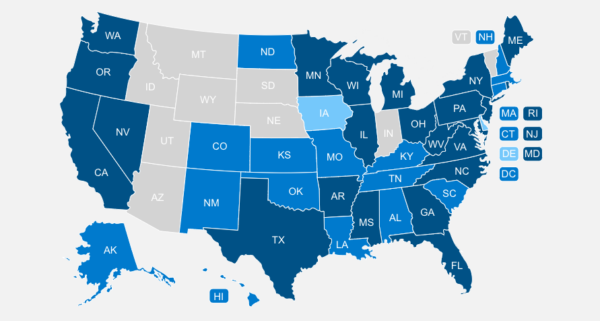

![Your 501(c)(3) Approval Guaranteed{{ include_custom_fonts({"Museo Sans":["Bold","Bold Italic","Regular","Regular Italic"]}) }}](https://no-cache.hubspot.com/cta/default/560178/interactive-194101957210.png)
![Start Your Nonprofit with Confidence{{ include_custom_fonts({"Museo Sans":["Bold","Bold Italic","Regular","Regular Italic"]}) }}](https://no-cache.hubspot.com/cta/default/560178/interactive-194101957151.png)
